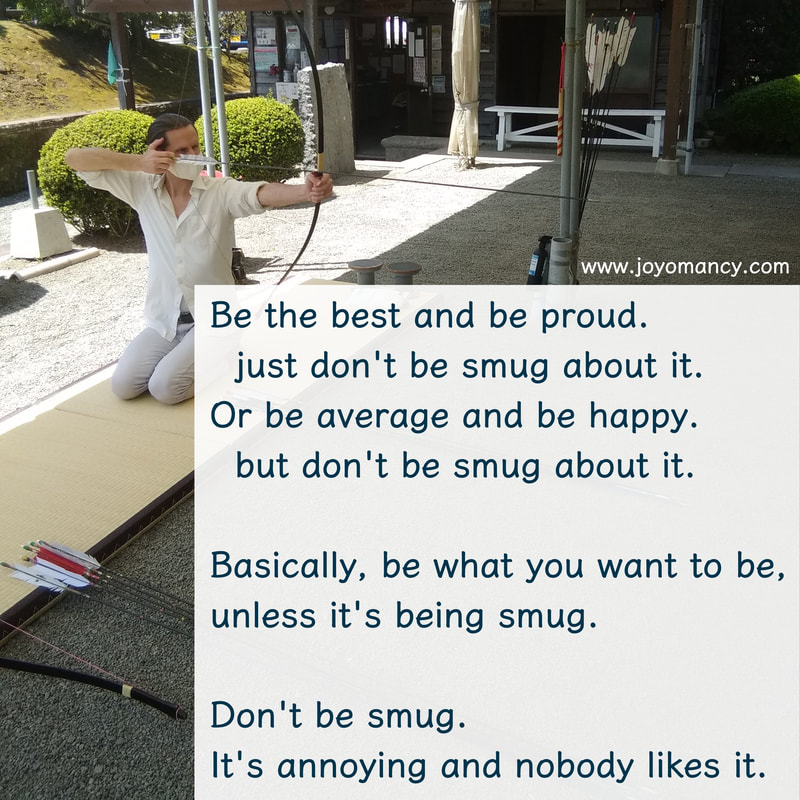|
It happened again. a social media friend request from someone I was pretty sure I was already friends with... A quick search of my current friends list confirmed my suspicions, and checking their original profile revealed a recent post saying they had been hacked and not to accept any new requests from them. Unfortunately, their warning post was already filling up with scammy phishing comments linking to "someone who could help recover their account"... And I also found in the mutual friends list of the new fake profile that some of our common friends had already fallen prey to this phishing scam and connected with the faker. This is all too common these days, and if it happens to you, here is a little simple non-technical advice: If it is your account in question... First realize that while it is possible you have been hacked, it is actually far more likely that you have simply been spoofed. If someone truly hacks into and gains access to your account (or business page), they will probably quickly lock you out, change the profile name & image, and start churning out scammy garbage. So if you are still able to log in, just change your password to be safe and relax. Panic could prompt you to do something risky (which I will mention in a moment) and is unhelpfully stressful. Instead of trying to hack your account, it's way easier for scammers to just copy your name and profile photos and pretend to be you. This is called spoofing and is usually done to collect all your friends and create a legitimate-looking profile for spreading disinformation or phishing attempts. If you've been spoofed, your account itself is probably safe. But a security hole has been opened in your online community. Thankfully there are a few easy things you can do to help plug it up.
Also, be aware that after you post the warning to your profile, it will likely start collecting offers to help you recover your account in the comments. This is where panic will work against you. Do not click or respond to any of these comments. They are all fake. This is especially true if your warning was publicly visible, but even if it was set to friends only, you might have a few friends in your list who have been hacked or were fake to start with. These are the people who will actually trick you into giving them your login information and then fully hack your account. They may be working in coordination with the spoofer, or they may be opportunists who found you through a simple keyword search of "my account was hacked". Either way, relax, remember that you are probably fine, and don't end up getting yourself hacked by secondary scammers through "social engineering". If you are the one receiving a duplicate friend request... Yes, it does happen that a friend forgets their password, inadvertently locks themselves out of their account, and fixes the situation by creating a new account and sending you a new friend request. There might even be a post on the new account saying that's what happened. But even so, always doublecheck your current friends list for the original and check that profile for a warning from them. Maybe even send a direct message to their original profile asking them about the situation. If there is nothing there, then watch the new profile carefully for a few weeks. If it starts pumping out posts that seem inconsistent with the original profile or suddenly starts sending you suspicious or scammy direct messages making unusual requests, be very careful about your interactions with it. Do some due diligence research and then make a carefully considered decision on it. Of course this kind of thing always comes down to a case-by-case judgement call, but in most of these cases the best thing is to quietly unfollow, unfriend, and then block that profile. And if you are certain it's a fake impostor account, consider reporting it by clicking the three dots and "Report" from the pop-up menu. Sometimes a friend truly does get locked out of their account and then needs your help getting back in or paying some medical bills, but now more often than not it's just some imposter trying to scam you... and both are very unfortunate. Stay safe and remember that the online safety of one friend is the online safety of us all-- PS: on a related note, especially if you have a business account or run ads on social media, you may often get direct messages claiming that your account is somehow in violation of copyright, community policies, etc. Those are fake attempts to freak you out and get you to hand over your login credentials so they can hack you. Even if you really are in violation of something, that isn't how they notify you. They will let you know very clearly through special dialogue boxes built right into the interface itself when you login to your account. Not through direct messages. Don't reply to those messages at all. If you just leave them in your inbox you will likely notice that after a few days or weeks their profile names and pictures will go blank because their fake accounts were deleted by the platform. So just go ahead and report or delete those messages sooner than later...
The reason politics, and therefore society, has become so messed up is that we do politics the same way we play games. In games and sports we do our "all-or-nothing" best to manipulate the rules and playing field to outwit, outmaneuver, and overpower the opponents. That's fine for the goal of winning a game that has a limited timeframe and then shaking hands and going home to enjoy our separate lives...
But politics isn't played in the lines of a limited field or board, and it doesn't end at the buzzer of a timeclock. The results of political fights go home with all of us and effect everything we do throughout our daily lives. That's because, unlike a game, playing politics is playing with real life in a permanent, take-home sort of way, and the losers suffer lasting harm that they can't just "shake off". From years of this kind of political cycle, it shouldn't be surprising that the opponents have become locked into position as bitter enemies, and a sportsmanlike handshake seems impossible to imagine. Please understand that I'm not pointing at any particular group or party. I'm calling out everyone, because we all do this. And I'm actually not just talking about government politics. We do the same at all levels of society: at the office, with our families, even within our closest personal relationships. And it's harmful. It's harmful to the losers in obvious ways. But it's also harmful to the winners to create entrenched enemies who will do their best to eventually turn the tables. It fills any social situation or relationship with antagonism and distrust. And there's no way to "leave it on the field". When people say: I'm not into politics. I hate office politics. I don't like playing games in relationships. This is exactly what they're talking about. And the competitive gamification of politics is exactly why. But it doesn't have to be this way. Gaming is based on competition, which seems to be a natural urge for us humans. And we should go ahead and enjoy that aspect of life with the wide variety of sports and games we invent to fill that need. But politics isn't an artificially designed game with a clear winner and loser determined by points scored in a determined place within a limited time. It's an unavoidable negotiation about how we prioritize and use resources for all the various necessities of life. Politics is ultimately based on cooperation. It's never perfect, but when it's going well more people tend to live better, and when it's going badly more people tend to live worse. So it's actually in most of our best interests to do be doing it well. In a win/lose game there can be no compromise. And even in a cooperative negotiation, compromise is not as satisfying as getting everything you want. And clearly there are better compromises (everyone gets "enough" of their needs met) and worse compromises (no one really gets their needs sufficiently accommodated). But politics should be an ongoing process to keep working and adjusting those compromises to support as much of the group as well as possible. An important flaw in all of this is the difficulty that small minorities face at the negotiation table. Some racial groups, people with disabilities, children, etc, simply don't have the numbers, recognition, or power to be well represented. This is an unfortunate reality. So it is really on the major players to carefully consider their needs and make sure that they are fairly accommodated in the cooperative solutions and policies of the whole group. This is not just the ethical thing to do, it also avoids making embittered enemies of forgotten or abused minorities who might someday rise to power with a score to settle... So whether or not you enjoy a ruthless game of basketball or scrabble, leave those instincts on the field and try considering the benefit of all the participants when you sit down to negotiate in the town hall, in the office, or at the family table. Commit to the wellbeing of everyone to create a more stable, sustainable situation for yourself and the day-to-day world you are living in. Redefining the root of all evil:
Pride is totally fine. Mediocrity is actually blissful. Being smug, everyone hates that. How many of us would do our best to treat an autistic child with kindness and respect? I think most of us would. But even I, who has worked so long and patiently with autistic children as a teacher, can sometimes forget that there are lots of "undercover" autistic adults out there in the workaday world. Maybe they have learned to "mask" most of their typical autistic behaviors to get along in society, or maybe they don't even know that they have "mild" autism. But they probably still end up showing some traits that many of us find annoying and irritating (social awkwardness, difficulty communicating, lack of humor, intensely specific interests, repetitive behaviors, rigid routines, emotional outbursts, hypersensitivity, physical clumsiness). And since it's really hard to know that they are in fact autistic, we pretty naturally assume that they are just irritating "normal" people getting in the way of our daily life... I'm not going to say you're a big jerk because you unintentionally find some behaviors irritating in the adults around you and that maybe you don't always handle them well. As I said, even I don't always handle these things perfectly, and I've developed an incredible amount of patience from my long years of working closely and lovingly with autistic children. What I will say is that when facing non-harmful but irritating behaviors in others, it's good to remind ourselves that we should really just be easygoing with everyone. This will save us from looking like a jerk for lashing out and traumatizing someone who actually has underlying "disabilities". It will also make everyone's day go just a little bit smoother when you can gracefully let these things go. And finally, it will lower your own stress levels and blood pressure if you can manage to smile your way past it, which is a big win for your long-term physical and mental health. I'm not saying you should completely ignore all problematic behavior around you, especially in longer-term relationships, but next time you find yourself getting annoyed at some trait or behavior that isn't likely to cause any actual harm, consider that there may be underlying factors (autism, anxiety, depression, insomnia, an illness in the family, grief over a loss, the list is long...) and see if you can let it slide. Even if there isn't anything deeper going on, your own health will still benefit anyway-- What some awesome women with autism want you to know about their experience: Some powerful words from my favorite person known to be on the autism spectrum: the successful, sexy, and very witty science communicator, Kyle Hill It's the holidays-- Yay! Many of us will be visiting with family and friends we haven't seen in a while. This time of reconnections is a wonderful thing, and after we've shared a nice feast of food and drink, things usually go pretty smoothly. But those opening lines of conversation leading up to that... Well, they can actually be quite stressful for some of us.
For a surprising number of people, the "small talk" that helps get conversations going between strangers, occasional acquaintances, and distant relatives can be unbearably awkward and dissatisfying. Some people offer strategies for overcoming this such as asking lots of questions about the other person and just listening to them carefully. This is not bad advice. But if you implement these strategies the wrong way, things could get even more awkward as you subject your unsuspecting uncle to an accidental interrogation... I used to hate small talk too (even as a child), but now that I'm here living in Japan I find that small-talk is everything... and I have come to realize that it's just the process of building the temporary emotional connection between people in order to have a better talk about something more important, or even just to have a more connected experience of something that will not be primarily verbal (eating a meal, playing a game, or a watching a movie). So whatever side of the awkwardness you are on, don't get too wrapped up in the content of it (how unimportant or uninteresting it might be) and just focus on the safe, caring connection that is being built by the seemingly trivial surface speech. As a Gemini-Cancer cusper, I am both blessed with the gift of gab and yet deeply concerned with serious authenticity. So I am very aware of the struggle between wanting to communicate but being less interested in discussing the weather, the latest sports scores, or the tea we are having... and I don't want to fake it because that makes me feel unsatisfied, dishonest, and guilty. But I also came to understand that small-talk isn't really primarily a content-based form of communication. It's really much more like animal calls, purrs, and tail-wagging. With this realization, we can be more committed to the authenticity of the underlying emotional experience than to the details of the surface statements... Commit to the connection rather than the meaning of the words. I'm not suggesting to lie about stuff, but just let the surface flow lightly while you engage authentically at the deeper level of the emotional connection. This change of mindset really freed me to heartfully meet anyone engaging me and connect with them where they were at, without feeling like I might be faking something... ...after that, the conversations themselves simply fell right into place without any effort at all-- I hope this helps you smooth out your enjoyment of the holidays and joyfully reconnect with your family and far-flung friends! Happy Holidays! Last night I went to a local poetry reading for the first time in almost twenty years. I felt wonderfully outclassed and it was so pleasant to have that chance to be swimming in the spoken words and emotional currents of such skillful artists. An enthusiastic ¡Thank you! to those poets who shared their hearts with us-- I was also confronted with the reality that while my literary critical sense has grown richer and more nuanced than ever, through my personal reiki and hypnotherapy work I have successfully therapied my internal complexity and tension right out. I'm still a fun and interesting person, but I have released the layers where the engine that drives powerful poetry is moored. Along with all those wonderful books I ended up shedding through Marie Kondo, I have no regrets --I'm surprisingly happy being deeply happy-- but I suddenly realize that I am now doomed to sketching out well-crafted but simply pleasant moments in haiku. Oh, yes, and then expressing my surplus poetics through densely complex prose in these blog posts... sorry! Photo evidence of me smoothly rolling out one of my English haiku just after fumbling through my Japanese tanka version of the same ...all gracefully wrapped up "saying blackberry, blackberry, blackberry" sharing my favorite Robert Hass poem 'Meditation at Lagunitas'
|
AuthorJeffrey Categories
All
Archives
December 2023
|



 RSS Feed
RSS Feed